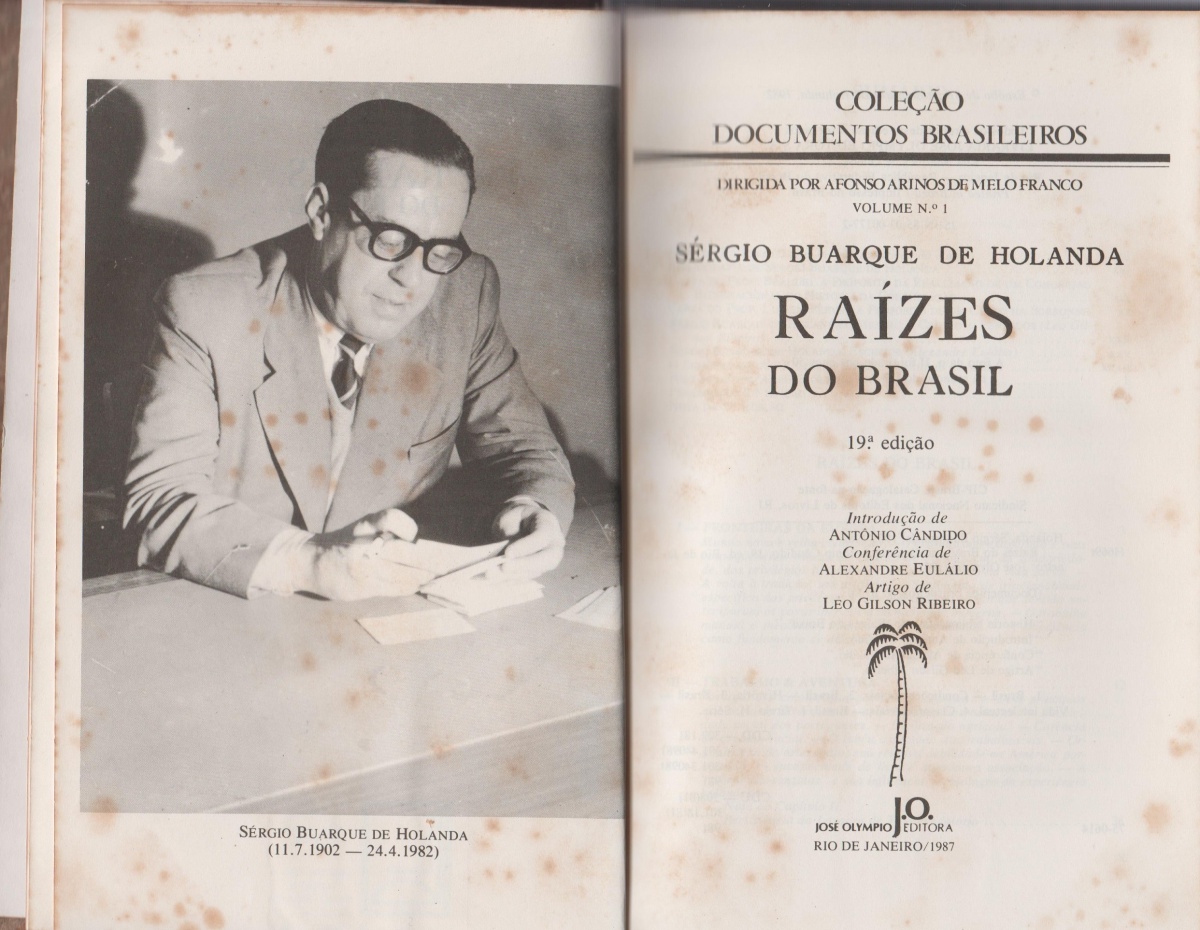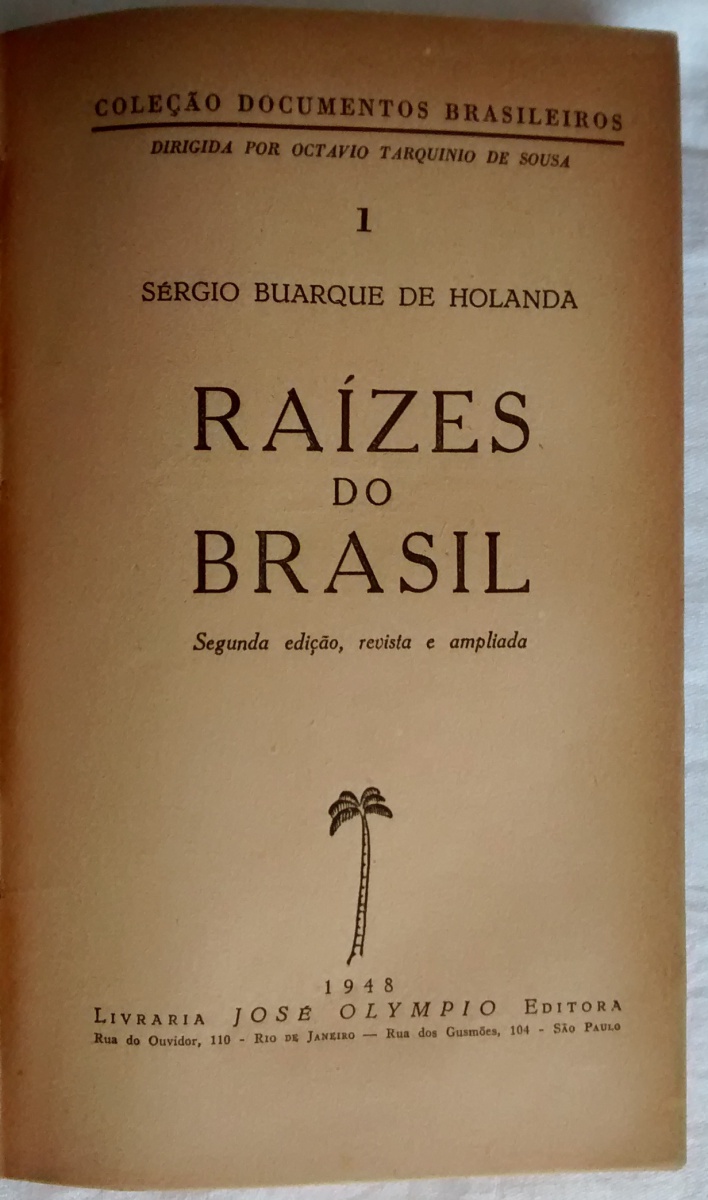
Ladrilhadores e semeadores: A modernização brasileira no pensamento político de Oliveira Vianna, Sérgio Buarque de Holanda, Azevedo Amaral e Nestor Duarte (1920–1940). Um historiador nas fronteiras: O Brasil de Sérgio Buarque de Holanda. São Paulo: Editora Fundação Perseu Abramo, 1998.

Additional BibliographyĬândido, Antônio, and Antônio Arnoni Prado.

Morse, "Sérgio Buarque de Holanda (1902–82)," in Hispanic American Historical Review 63, no. Richard Graham, "An Interview with Sérgio Buarque de Holanda," in Hispanic American Historical Review 62, no. Holanda is the general editor of the first six volumes of the História geral da civilização brasileira (General History of Brazilian Civilization ) and the sole author of volume seven, Do império à república (From the Empire to the Republic ). His other major works include Monções (Monsoons ), a study of westward movement from São Paulo Caminhos e Fronteiras (Roads and Frontiers ), a cultural interpretation of Brazilian colonial expansion and Visão do paraíso (Vision of Paradise ), an analysis of the images that drew colonists to the frontiers of Brazil. The book launched Holanda on an academic career that culminated with his tenure as professor of the history of Brazilian civilization at the University of São Paulo from 1957 to 1969. The cordial interaction of its leaders, according to Holanda, enabled Brazil to survive and expand on a fragmented continent, but thwarted necessary social change. In Raízes do Brasil Holanda introduces the concept of the "cordial man"-the predominant Brazilian political type, the leader who prefers conciliation to confrontation. The result was Raízes do Brasil (Roots of Brazil) published in Brazil in 1936, after his return from Europe. In Germany, Holanda felt the call to write a history of Brazil, to explain his country to the world. In Berlin in 1929–1930 Holanda familiarized himself with the main trends of German historiography and social science and developed a taste for the works of Max Weber. Holanda's writings attracted the attention of São Paulo press lord Assis Chateaubriand, who sent him to Germany as correspondent for his newspaper O Jornal. He became part of the "modernist" movement, which rejected Portuguese formalism and exalted Brazilian popular culture.


In Rio he abandoned his legal studies for a precarious career as an essayist, literary critic, and free-lance journalist. After completing his secondary education in São Paulo, Holanda left for Rio de Janeiro in 1921 to attend law school. Born in São Paulo, Holanda was the son of a civil servant who had migrated there from the former Dutch colony of Pernambuco, a fact reflected by his surname.


 0 kommentar(er)
0 kommentar(er)
